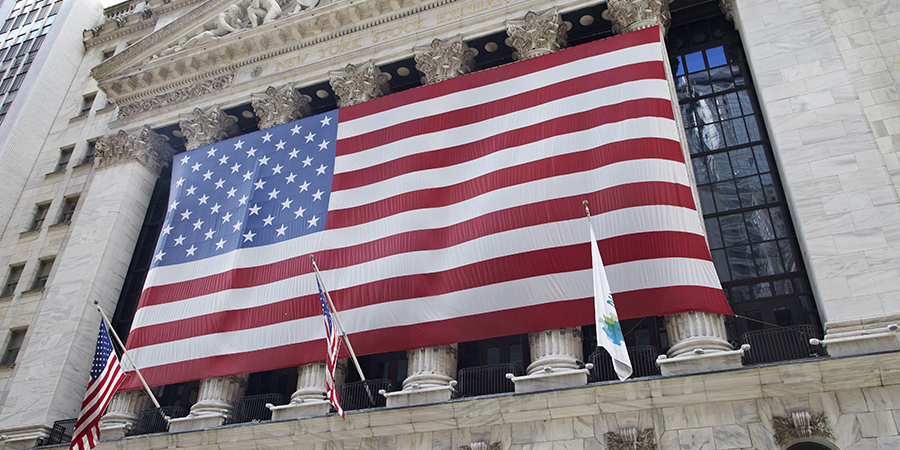by Jason Xavier, Franklin Templeton Investments
Recent developments in the UK investment market have brought liquidity concerns back to the top of the agenda for some investors. And inevitably, Exchange Traded Funds (ETFs) have found themselves in the crosshairs. However, Jason Xavier, our Head of EMEA ETF Capital Markets, argues ETFs can offer investors flexibility and transparency into markets at times of stress.
As I meet investors, I often hear concerns that the presence of exchange traded funds (ETFs) can exacerbate market dislocations and volatility.
The argument goes that because ETFs offer investors a convenient, transparent way to enter or exit the market, they could create a vicious circle if a lot of investors decided to exit the market at the same time.
But I’ve got some news for you. Market dislocations still occurred well before ETFs arrived on the scene. For example, there were no ETFs in the Wall Street Crash of 1929, no ETFs on Black Monday in 1987 and a limited number of ETFs during the Global Financial Crisis of 2008-2009.
Multiple Layers of Liquidity
Recent high-profile developments in the UK investment landscape have reignited questions about liquidity risks.
Of course, ETFs remain subject to similar market risks during times of stress as other assets.
However, the structure of ETFs brings extra layers of liquidity and actually, should make it less likely that investors are left with assets they can’t liquidate, when dislocations do occur.
Liquidity for a traditional mutual fund comes only from the fund itself, whereas ETFs offer multiple layers of liquidity via both a primary and secondary market.
Most simply put, investors have the option to offer their ETF units to another investor in a so-called secondary market trade.
But what if there are no willing buyers? That’s where the structure of ETFs makes a difference. Remember, as we explained in a previous article, one of the central characteristics of an ETF is that the supply of shares is flexible.
So, should there be no willing buyers, an ETF investor may still have the option to sell to an authorised participant who effectively offers primary market liquidity.
Bringing Democracy to Investing
In our view, fundamental macroeconomic, geopolitical and idiosyncratic-specific risks move markets more and play a much greater role in dislocations than ETFs do.
Markets are irrational and have always risen and fallen. The arrival of ETFs didn’t create that phenomenon. Over the last 100 years, we have seen many instances of exuberant bull markets followed by declines and bear markets.
ETFs have changed the investing landscape by democratising almost all aspects of the investment process, including access to asset classes, price discovery, trading and market timing and even volatility itself.
ETFs offer end-investors the same executable transparency, freedom and access to act on their convictions that professional market participants—hedge fund managers, traders, investment managers or stockbrokers—have had for many years.
View Jason Xavier’s previous articles here.
Important Legal Information
The comments, opinions and analyses are the personal views expressed by the investment manager and are intended to be for informational purposes and general interest only and should not be construed as individual investment advice or a recommendation or solicitation to buy, sell or hold any security or to adopt any investment strategy. It does not constitute legal or tax advice. The information provided in this material is rendered as at publication date and may change without notice and it is not intended as a complete analysis of every material fact regarding any country, region market or investment.
Data from third-party sources may have been used in the preparation of this material and Franklin Templeton Investments (“FTI”) has not independently verified, validated or audited such data. FTI accepts no liability whatsoever for any loss arising from use of this information, and reliance upon the comments, opinions and analyses in the material is at the sole discretion of the user. Products, services and information may not be available in all jurisdictions and are offered by FTI affiliates and/or their distributors as local laws and regulations permit. Please consult your own professional adviser for further information on availability of products and services in your jurisdiction.
What Are the Risks?
All investments involve risks, including possible loss of principal. The value of investments can go down as well as up, and investors may not get back the full amount invested. Brokerage commissions and ETF expenses will reduce returns. ETF shares may be bought or sold throughout the day at their market price on the exchange on which they are listed. ETFs trade like stocks, fluctuate in market value and may trade above or below the ETF’s net asset value. However, there can be no guarantee that an active trading market for ETF shares will be developed or maintained or that their listing will continue or remain unchanged. While the shares of ETFs are tradable on secondary markets, they may not readily trade in all market conditions and may trade at significant discounts in periods of market stress.
To get insights from Franklin Templeton delivered to your inbox, subscribe to the Beyond Bulls & Bears blog.
To comment or post your question on this subject, follow us on Twitter @FTI_Global and on LinkedIn.
Copyright © Franklin Templeton Investments










